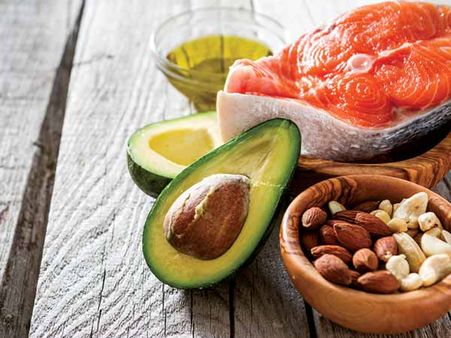Just In
- 2 hrs ago

- 2 hrs ago

- 5 hrs ago

- 6 hrs ago

Don't Miss
- News
 Railways To Run Special Trains For Elections In Karnataka
Railways To Run Special Trains For Elections In Karnataka - Movies
 Heeramandi Screening: Salman Khan's Presence Hinting At Sanjay Leela Bhansali's Inshallah Being Revived?
Heeramandi Screening: Salman Khan's Presence Hinting At Sanjay Leela Bhansali's Inshallah Being Revived? - Automobiles
 Bajaj To Offer Chetak Electric Scooter At Lower Price Point: All Details Here
Bajaj To Offer Chetak Electric Scooter At Lower Price Point: All Details Here - Sports
 Bangladesh vs Zimbabawe: Will Shakib Al Hasan Play Home T20 Series In May Or Not?
Bangladesh vs Zimbabawe: Will Shakib Al Hasan Play Home T20 Series In May Or Not? - Technology
 Qualcomm Reveals Snapdragon X Plus Chip for Laptops: 10 Core CPU, On-Device AI, & Much More
Qualcomm Reveals Snapdragon X Plus Chip for Laptops: 10 Core CPU, On-Device AI, & Much More - Education
 Kerala SSLC Results 2024: Number of Ways you can check the Results
Kerala SSLC Results 2024: Number of Ways you can check the Results - Finance
 Gold Prices Ayodhya: In Ram-Janma-Bhumi, 24carat Falls By Rs 380 In 10-Grams, Drops By Rs 3,800 In 100-gram
Gold Prices Ayodhya: In Ram-Janma-Bhumi, 24carat Falls By Rs 380 In 10-Grams, Drops By Rs 3,800 In 100-gram - Travel
 Escape to Kalimpong, Gangtok, and Darjeeling with IRCTC's Tour Package; Check Itinerary
Escape to Kalimpong, Gangtok, and Darjeeling with IRCTC's Tour Package; Check Itinerary
International Epilepsy Day: Nutrition Tips For People Living With Epilepsy
Every year, the second Monday in February is observed as International Epilepsy Day to promote awareness of epilepsy in more than 130 countries. The Day is a joint initiative by the International Bureau for Epilepsy (IBE) and the International League Against Epilepsy (ILAE).
Epilepsy is the fourth most common neurological disorder that can affect people of all age groups. The condition is characterised by unpredictable seizures. Many people with epilepsy experience more than one type of seizure which have symptoms like temporary confusion, loss of consciousness and staring.

It is important for people with epilepsy to follow a nutritious, well-balanced diet. Following a healthy lifestyle is necessary to keep your seizures under control and improve physical and mental well-being. By eating healthy, it doesn't mean that you have to be on a particular diet, it means consuming certain foods that will help improve seizure control.
Here, we will tell you how to improve your dietary habits with the help of these nutrition tips.

1. Eliminate simple carbohydrates
Eliminate foods that contain a lot of sugar which is found in simple carbohydrate foods. Simple carbohydrates tend to have a high glycemic index, which when consumed gets absorbed by the body very quickly. Simple carbs include table sugar, candies, sugary drinks, syrups and baked goods. Try to eliminate these foods from your diet.


2. Eat wholesome foods
A person with epilepsy should eat a diet consisting of whole, natural foods like fruits, vegetables and whole grains. These foods are minimally processed and packed with vitamins, minerals and antioxidants that will improve your physical and mental well-being.

3. Consume healthy fats
Healthy fats found in oily fishes, extra virgin olive oil, nuts and seeds are considered good for people with epilepsy because fats help to absorb important nutrients that aid in the proper functioning of the cells.

4. Drink plenty of water
People with epilepsy should drink plenty of water because drinking water helps you to concentrate better and helps in better functioning of the body's cells. This lowers the risk of seizures caused by dehydration.

5. Eat protein -rich foods
Including protein-rich foods into your diet will help build and support muscles, red blood cells, hormones and immune system. Protein can be found in foods like meat, fish, eggs, lentils, milk and cheese.

6. Eat energy-boosting foods
Most people with epilepsy will feel extremely tired or exhausted due to disrupted sleep because of seizures. So, consume foods that increase your energy levels such as brown rice, oats, peas, beans, nuts, yogurt, apples, pears, berries and broccoli.


7. Enjoy cooked food
People with epilepsy are recommended to eat cooked food which is much healthier than fried food. You can steam, bake, grill, boil or poach your food.

8. Eat vitamin D-rich foods
Vitamin D aids the body in absorbing calcium and helps in building strong bones. Some anti-epileptic drugs (AEDs) can lower bone density and make your bones weak. To help prevent this, eat foods rich in vitamin D such as eggs, fish and dairy products.

9. Know what foods you eat
Research what foods are good and bad for you. Check the food label to see if they are high in calories, fats, salt and sugar. Choose foods which have fewer calories and sugar as they are much healthier. This will help you make clear food choices.
-
 healthExclusive: On International Epilepsy Day 2024, Let's Dispel Myths And Misconceptions About Epilepsy
healthExclusive: On International Epilepsy Day 2024, Let's Dispel Myths And Misconceptions About Epilepsy -
 disorders cureFatima Sana Shaikh Opens Up About Her Epilepsy Diagnosis During National Epilepsy Awareness Month
disorders cureFatima Sana Shaikh Opens Up About Her Epilepsy Diagnosis During National Epilepsy Awareness Month -
 wellnessScientists Develop AI Algorithms That Can Detect Brain Abnormalities, New Hope For Epilepsy Treatment
wellnessScientists Develop AI Algorithms That Can Detect Brain Abnormalities, New Hope For Epilepsy Treatment -
 kidsNational Epilepsy Day 2021: Epilepsy In Children: Causes, Symptoms And Does Treatment Help Ease The Condition?
kidsNational Epilepsy Day 2021: Epilepsy In Children: Causes, Symptoms And Does Treatment Help Ease The Condition? -
 disorders cureNational Epilepsy Day 2021: What Is Status Epilepticus? Causes, Symptoms, Diagnosis And Treatments
disorders cureNational Epilepsy Day 2021: What Is Status Epilepticus? Causes, Symptoms, Diagnosis And Treatments -
 healthLevel Four Epilepsy Care Centre Launched At Prominent Chennai Hospital
healthLevel Four Epilepsy Care Centre Launched At Prominent Chennai Hospital -
 wellnessInternational Epilepsy Day: Expert Speaks About Ketogenic Diet For Epilepsy
wellnessInternational Epilepsy Day: Expert Speaks About Ketogenic Diet For Epilepsy -
 wellness10 Tips On How To Live Well With Epilepsy
wellness10 Tips On How To Live Well With Epilepsy -
 disorders cureInternational Epilepsy Day: Epilepsy Causes, Symptoms, Triggers, Risk factors & Treatment
disorders cureInternational Epilepsy Day: Epilepsy Causes, Symptoms, Triggers, Risk factors & Treatment -
 disorders cureInternational Epilepsy Day 2020: Refractory Epilepsy And Role Of Keto Diet In Treating Epilepsy
disorders cureInternational Epilepsy Day 2020: Refractory Epilepsy And Role Of Keto Diet In Treating Epilepsy -
 disorders curePharmacogenetics In Treating Epilepsy
disorders curePharmacogenetics In Treating Epilepsy -
 basicsHow Does Epilepsy Affect Pregnancy?
basicsHow Does Epilepsy Affect Pregnancy?


 Click it and Unblock the Notifications
Click it and Unblock the Notifications



